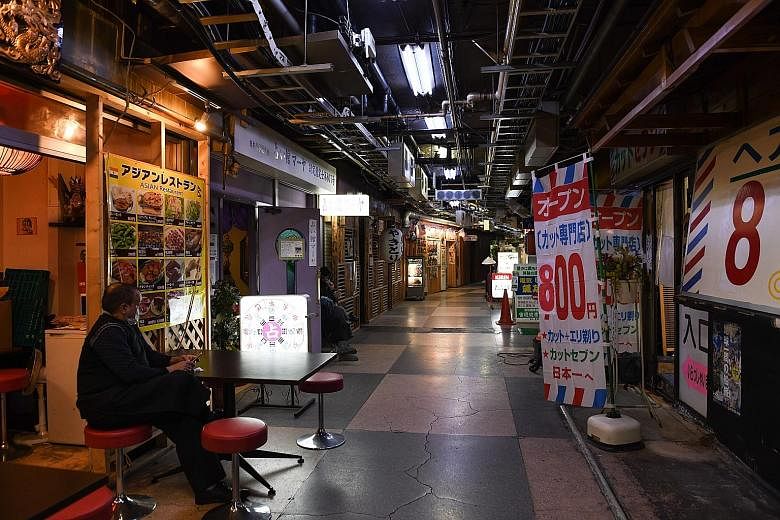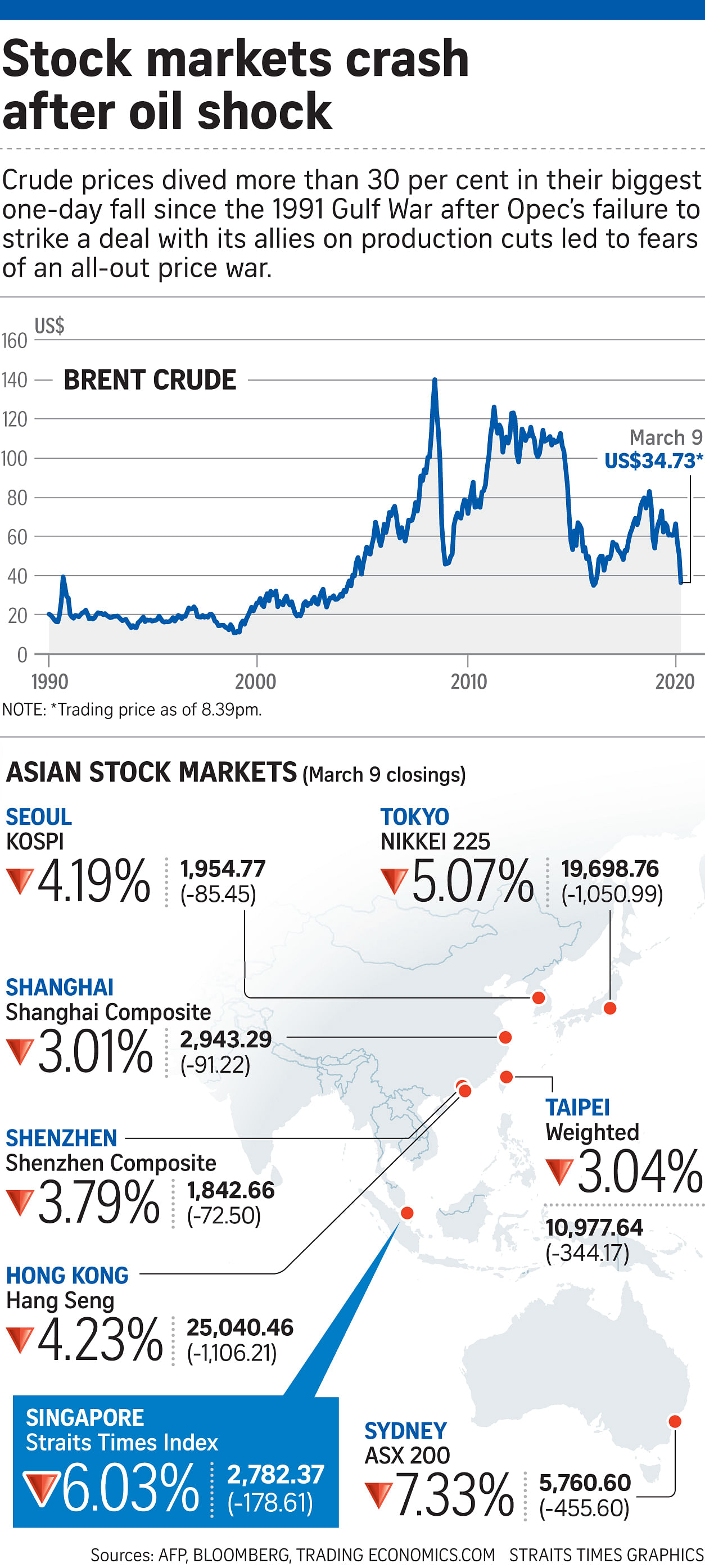TOKYO • Japan's biggest contraction in more than five years and a sharp rise in the yen added to escalating concerns among policymakers about the ability of the world's third-largest economy to fight off the impact of the coronavirus and a crash in oil prices.
During a day in which markets were battered by a steady stream of bad news, senior government officials emphasised the need for continued coordination with other nations to address a shared global problem.
Currency officials also warned against excessive foreign exchange moves after the yen jumped to its highest level in more than three years.
Japan's top currency diplomat said yesterday that the country stands ready to respond appropriately when necessary to the currency market, which has shown nervous moves, in accordance with an agreement by Group of 7 and Group of 20 major economies.
"Excess volatility in the currency market is undesirable," Mr Yoshiki Takeuchi told reporters after a meeting with senior officials from the Bank of Japan and the Financial Services Agency to discuss global markets amid the coronavirus outbreak.
Revised data showed that Japan's gross domestic product (GDP) shrank faster than first thought in the last quarter, contracting at an annualised pace of 7.1 per cent as a tax increase walloped consumption and businesses cut capital spending at the fastest pace since the global financial crisis.
The worse-than-expected data showed that the economy was already in a highly fragile state when the virus started to knock back exports, supply chains, tourists and shoppers.
With the prospects for a near-term recovery already set back by the epidemic, the emerging oil price war threatens to further complicate the outlook, putting further pressure on policymakers to respond.
Prime Minister Shinzo Abe expressed his worries yesterday about the impact of the virus on the tourism industry and factory production lines. He is expected to flesh out new emergency measures today, having unveiled interest-free loans for small businesses at the weekend.
Mr Abe's tax chief Akira Amari yesterday also called for an extra budget in the spring.
For the Bank of Japan (BOJ), whose policy ammunition is getting depleted, the options are limited.
BOJ governor Haruhiko Kuroda issued an emergency statement last week, trying to calm markets with a greater willingness to buy more assets. But with the yen at one point reaching 101.57 against the dollar yesterday, the central bank may be forced to consider even a cutting of its negative interest rate.
Finance Minister Taro Aso said a coordinated global response was needed to address what is becoming a shared economic crisis.
"What we can do with monetary measures is getting very limited, so we should take fiscal action," he told Parliament.
"The global economy will be affected if nations don't keep action coordinated, and I think we have to collaborate on policy, including fiscal measures."
BLOOMBERG, REUTERS


